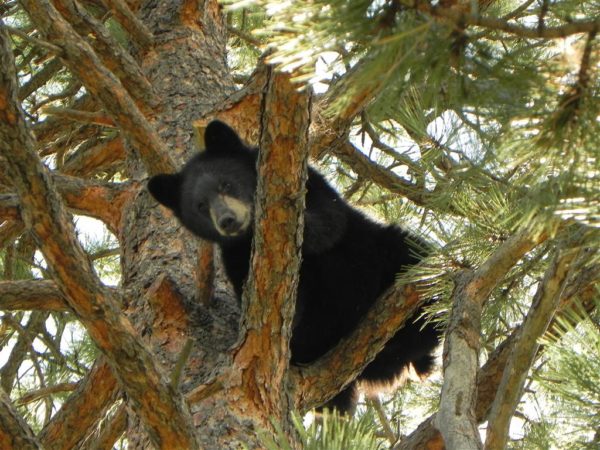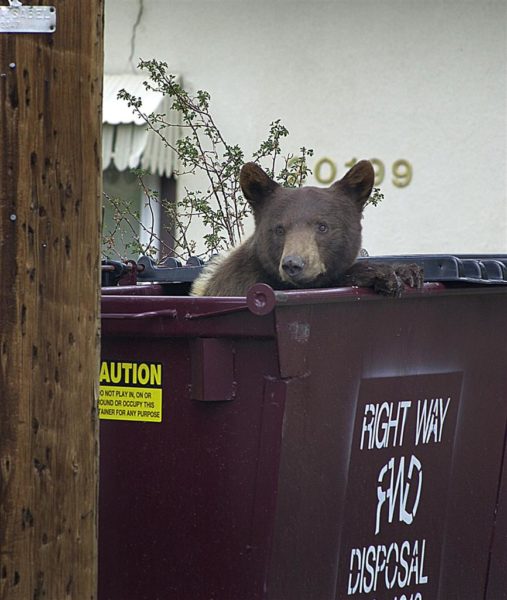 This is the time of year when Colorado’s black bears go into hibernation. Throughout the fall, black bears spend nearly all of their time eating, packing in about 20,000 calories a day. This will store up the energy that they will use during their hibernation period. Then, around the beginning of November, they retreat to their winter dens, known as hibernacula, where they will stay until spring. Colorado Parks & Wildlife (CPW) has produced a video series about this fascinating process, available to view online from the State Publications Library.
This is the time of year when Colorado’s black bears go into hibernation. Throughout the fall, black bears spend nearly all of their time eating, packing in about 20,000 calories a day. This will store up the energy that they will use during their hibernation period. Then, around the beginning of November, they retreat to their winter dens, known as hibernacula, where they will stay until spring. Colorado Parks & Wildlife (CPW) has produced a video series about this fascinating process, available to view online from the State Publications Library.
Bears hibernate during the winter because their natural food sources, such as insects, grasses, nuts, and berries, are not available. Hibernation for bears is much more than just a long sleep. Their heart rate and metabolism slow down to about half their normal rate, their body temperature drops, and they enter a state where they do not eat, drink, or go to the bathroom for approximately two hundred days!
Can hibernating bears be woken up? Yes. According to Colorado Parks & Wildlife (CPW), hibernating bears can wake up if their den is disturbed. They are also in tune with the seasons, so they leave their dens sooner in years when warm spring weather comes early.
 Black bears consume large amounts of food both in the fall, when they are preparing to hibernate, and in the spring, when they emerge. Therefore, in order to avoid conflicts, it is important for humans to remember to keep food out of bears’ reach. CPW offers helpful tips in their publications, including:
Black bears consume large amounts of food both in the fall, when they are preparing to hibernate, and in the spring, when they emerge. Therefore, in order to avoid conflicts, it is important for humans to remember to keep food out of bears’ reach. CPW offers helpful tips in their publications, including:
- Attracting Birds, Not Bears
- Bearproofing Your Home
- Bearproofing Your Trash
- Deterrents Can Teach Bears to Stay Away
Additional information can be found on CPW’s Living with Wildlife – Bears webpage.
Photos courtesy Colorado Parks & Wildlife
- How to Spot the Differences Between Eagles and Hawks - August 16, 2021
- How Transportation Projects Help Tell the Story of Colorado’s Past - August 9, 2021
- Time Machine Tuesday: The Night the Castlewood Canyon Dam Gave Way - August 3, 2021
